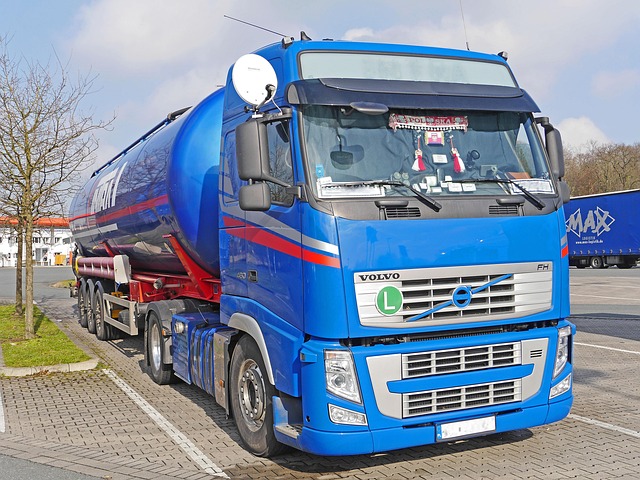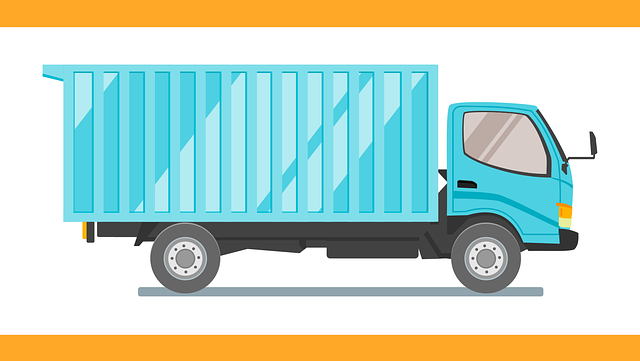Trucking businesses need robust physical damage coverage for fleet vehicles to safeguard against accidents, disasters, and vandalism. Comprehensive fleet insurance includes collision coverage and tailored affordable physical damage plans, protecting against direct and indirect expenses like towing and rental vehicles. By collaborating closely, insurers and fleet managers can design flexible policies addressing unique risks, such as cargo shifts and harsh weather, ensuring fleet vehicle protection that aligns with efficient management goals. This strategic approach results in truck repair insurance solutions that keep costs manageable while promoting quick repairs and a safer transportation network.
In the dynamic world of trucking, ensuring optimal physical damage coverage for fleet trucks is paramount to mitigate risks and optimize operations. This article delves into the significance of robust truck repair insurance, guiding businesses through navigating complex options. We explore strategies for enhancing comprehensive fleet insurance policies while offering insights on unlocking affordable and effective small fleet damage plans. By understanding collision coverage for fleets, operators can protect their investments, streamline repairs, and maintain efficient logistics.
Understanding the Importance of Physical Damage Coverage for Fleet Trucks

For trucking businesses, ensuring the protection of their fleet vehicles is paramount. Physical damage coverage for fleet trucks plays a pivotal role in safeguarding against unexpected repairs and replacements due to accidents, natural disasters, or vandalism. This type of insurance acts as a safety net, providing financial relief when repairs are needed, which can be particularly costly for fleet vehicle owners. By understanding the scope of potential risks, businesses can make informed decisions about their truck repair insurance policies.
Comprehensive fleet insurance, including collision coverage and affordable physical damage plans, offers tailored protection. It not only covers direct damage to vehicles but also addresses indirect expenses like towing and rental vehicles during repairs. With a well-designed policy, small fleets can maintain operational efficiency while minimizing the financial impact of unexpected vehicle damage, ensuring their trucking operations run smoothly.
Navigating Truck Repair Insurance Options: What to Look For

When it comes to insuring your fleet of trucks for physical damage coverage, there’s a plethora of options to navigate. First, consider what specific types of protection are offered. Look for policies that include comprehensive and collision coverage for fleets, which can help cover costs associated with accidents or other incidents causing physical damage to your vehicles. Affordable physical damage plans tailored for small fleets are readily available, ensuring you get the best value for money.
While reviewing truck repair insurance options, pay close attention to deductibles and coverage limits. Understand what’s included in the fleet vehicle protection plan, such as towing services, rental reimbursement during repairs, and any additional benefits that could prove invaluable in case of unexpected events. Choose a policy that aligns with your trucking fleet’s needs, ensuring you have the right balance between coverage and affordability.
Strategies for Optimizing Comprehensive Fleet Insurance Policies

To optimize physical damage coverage for fleet trucks, insurers and businesses should collaborate closely. One strategic approach involves tailoring comprehensive fleet insurance policies to meet specific operational needs. This includes negotiating collision coverage for fleets that accounts for unique risks associated with trucking operations, such as cargo shifts during transit or harsh weather conditions. By offering flexible and affordable physical damage plans, insurers can attract small fleets looking for cost-effective protection without compromising on quality.
Additionally, fleet vehicle protection can be enhanced through innovative policy structures. Insurers can incorporate specific deductibles, claim processes, and repair network partnerships tailored to the needs of different trucking sectors. These strategies ensure that truck repair insurance is both accessible and aligned with the goals of efficient fleet management. Ultimately, this collaborative approach leads to a more robust and responsive insurance market for comprehensive fleet insurance.
Unlocking Affordable and Effective Small Fleet Damage Policies

Many small fleet owners often face a challenge in finding cost-effective physical damage coverage for their trucks while ensuring comprehensive protection. The traditional approach to truck repair insurance can be cumbersome and expensive, especially for smaller operations with limited resources. However, with a strategic partnership between insurers and fleet managers, tailored solutions can be designed to meet these unique needs without breaking the bank. By understanding the specific risks and requirements of small fleets, insurers can unlock affordable physical damage plans that cover collision and comprehensive losses.
These policies aim to provide fleet vehicle protection, ensuring that owners can access efficient repairs and quick turnaround times in case of unforeseen accidents or damage. With careful customization, small fleet damage policies can offer peace of mind while keeping costs manageable. This collaborative approach not only benefits individual trucking businesses but also contributes to a safer and more resilient transportation network as a whole.
Fostering collaboration with insurers is key to optimizing physical damage coverage for fleet trucks. By understanding the unique needs of trucking operations and strategically navigating available insurance options, businesses can unlock affordable and effective small fleet damage policies. Implementing comprehensive fleet insurance that includes robust collision coverage ensures the protection of valuable assets and streamlined repair processes. Embracing these strategies enables fleet managers to minimize disruptions and maximize operational efficiency, ultimately enhancing overall fleet vehicle protection.
